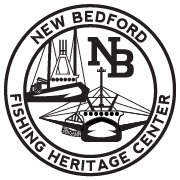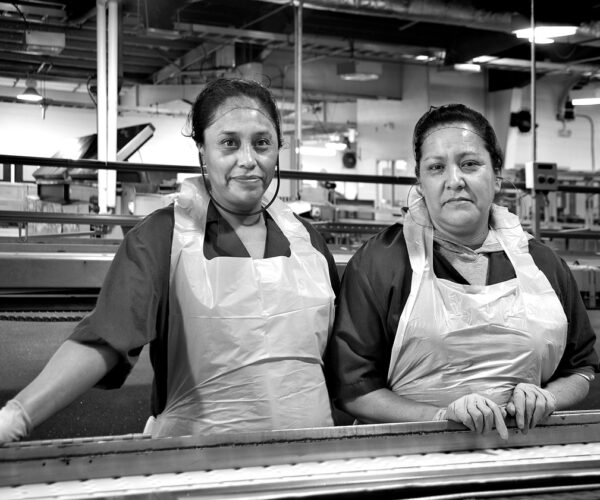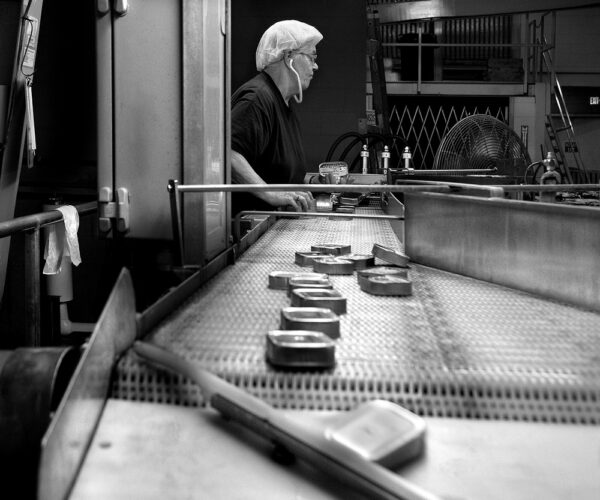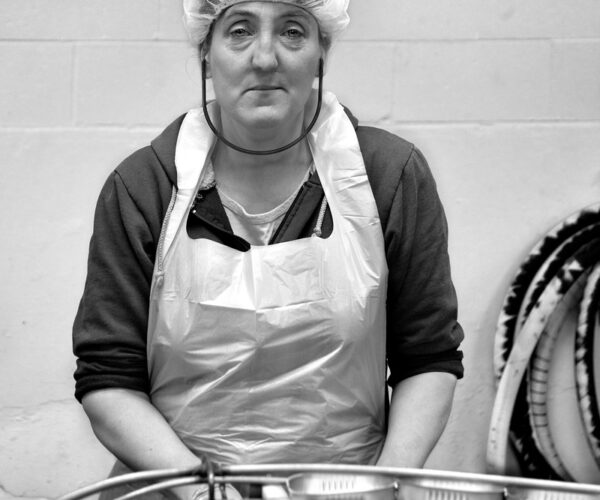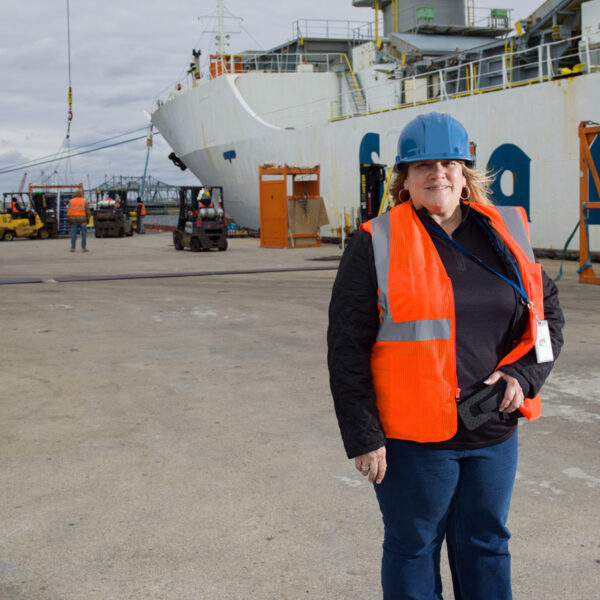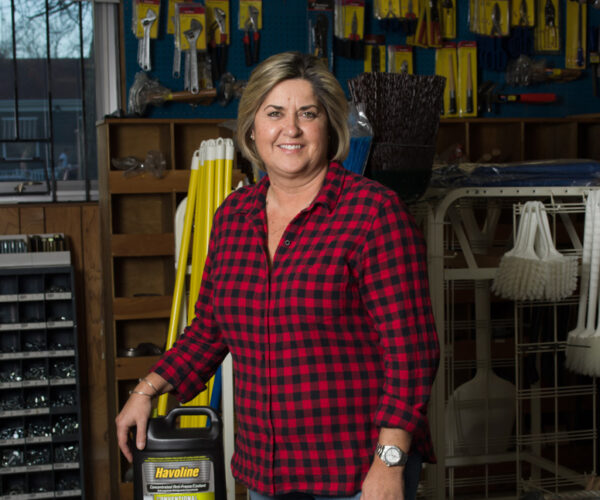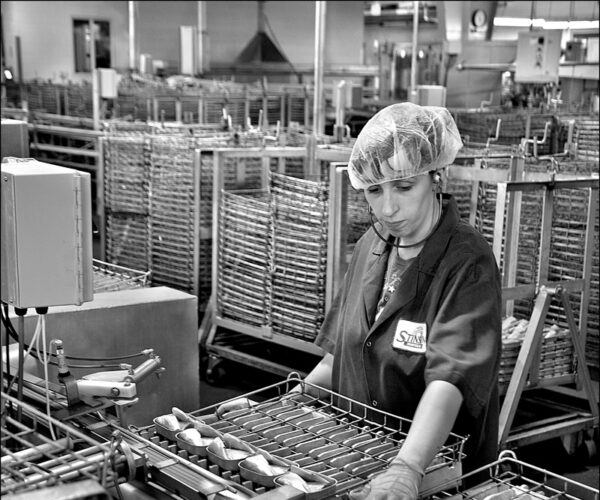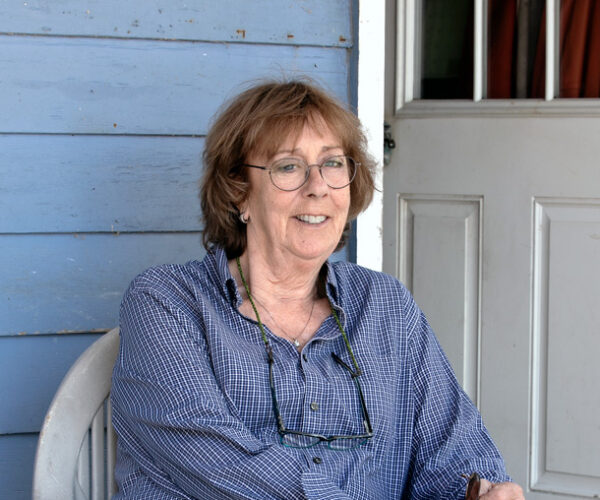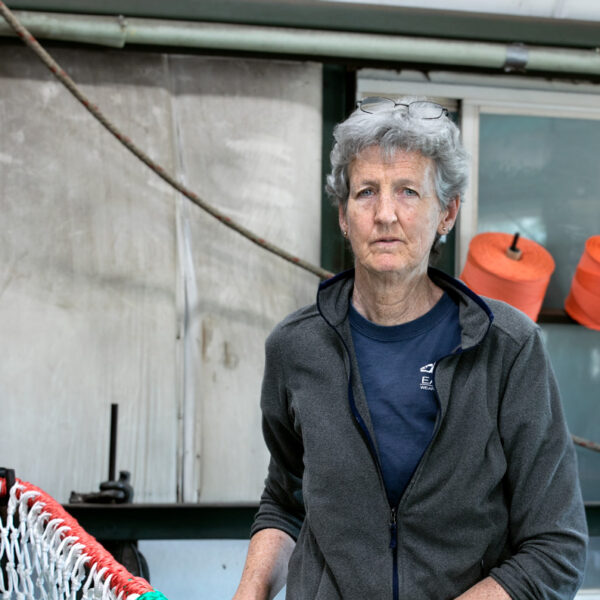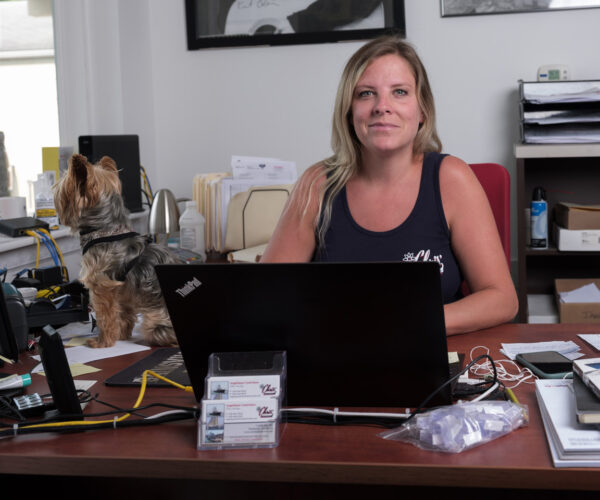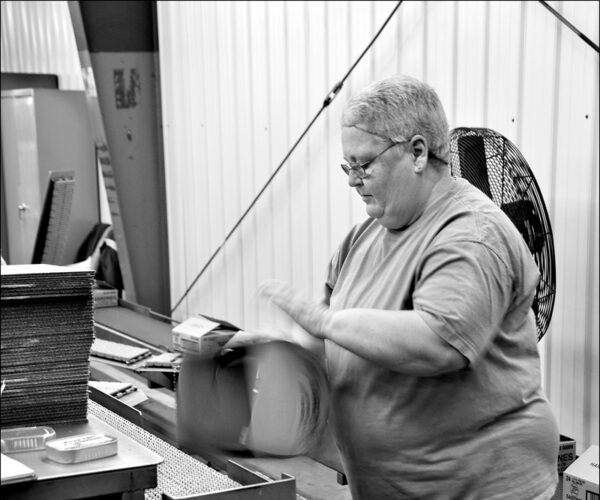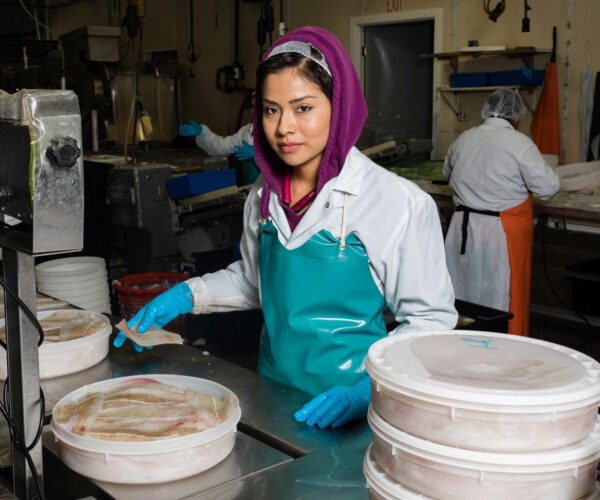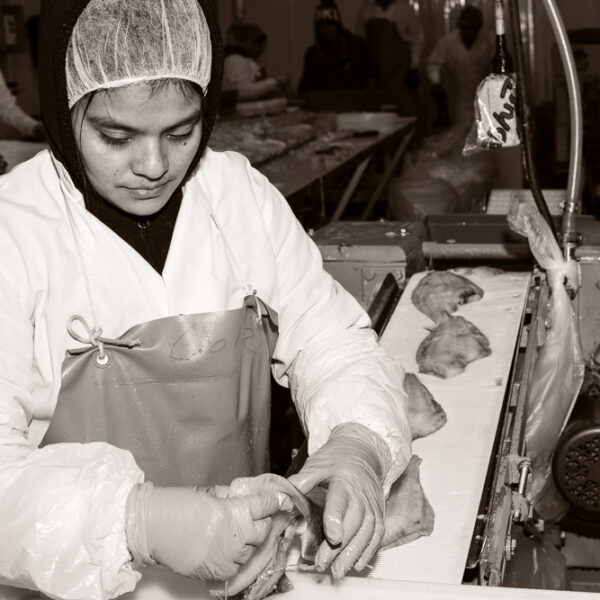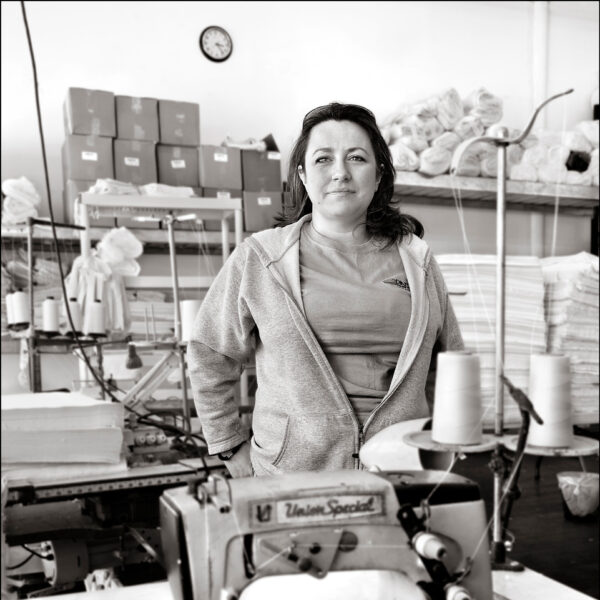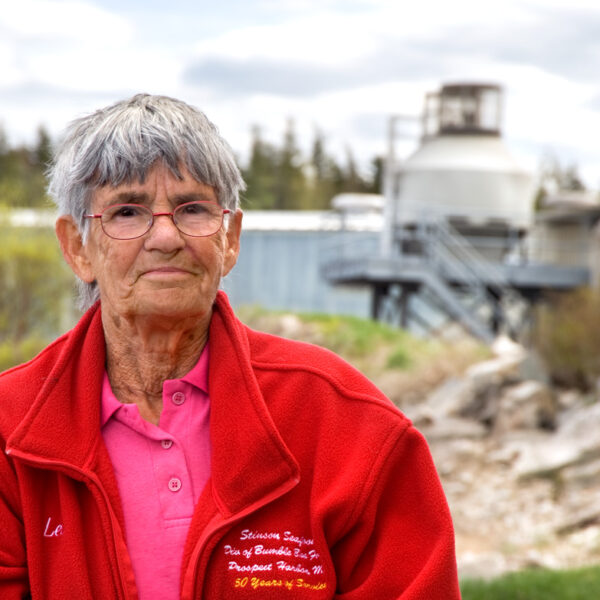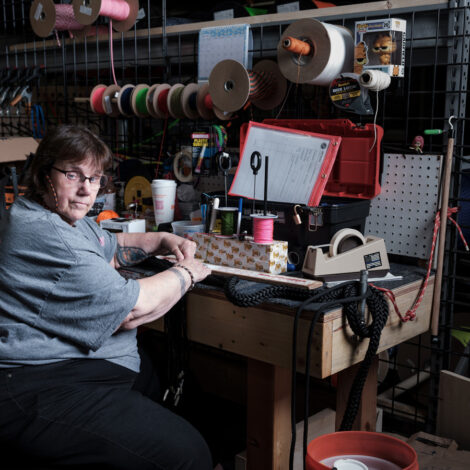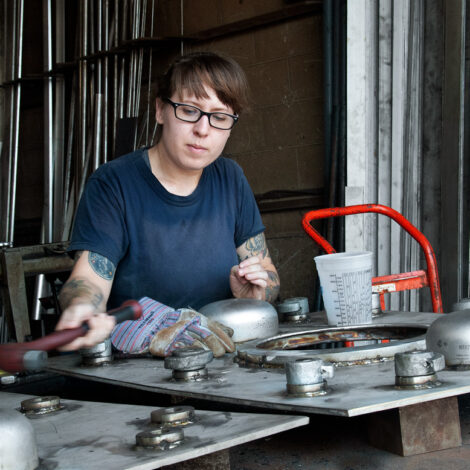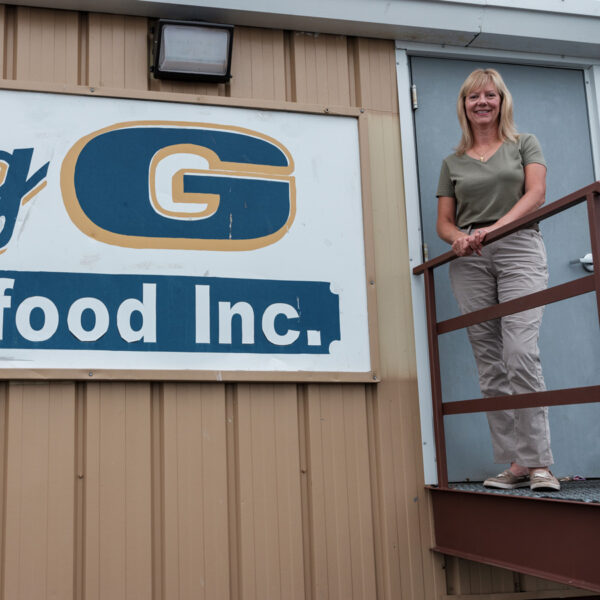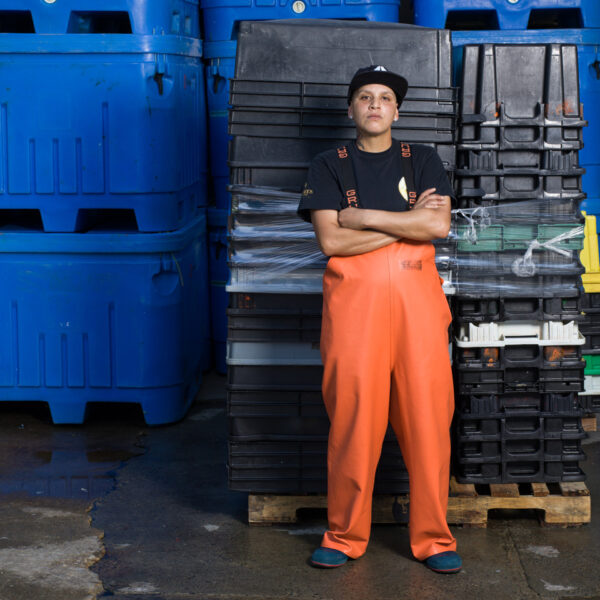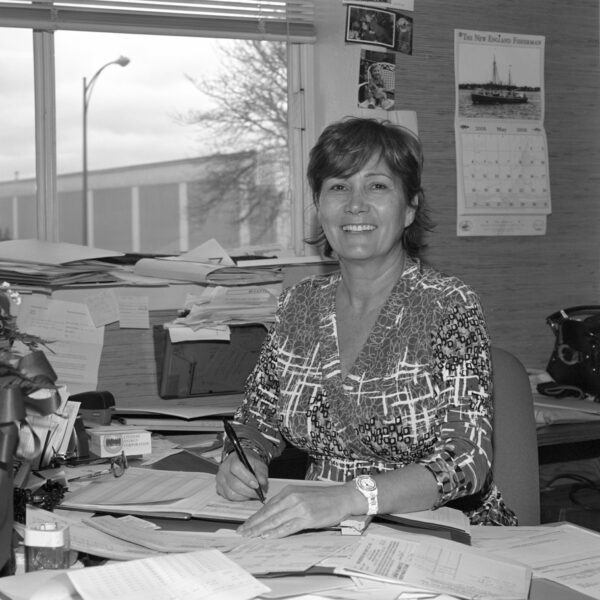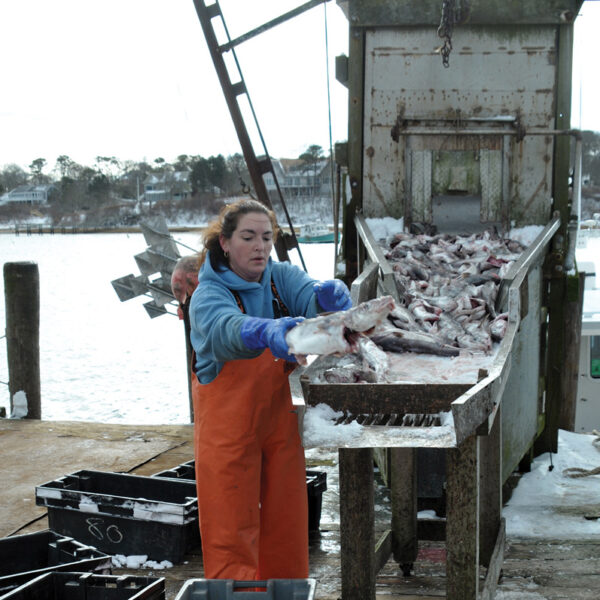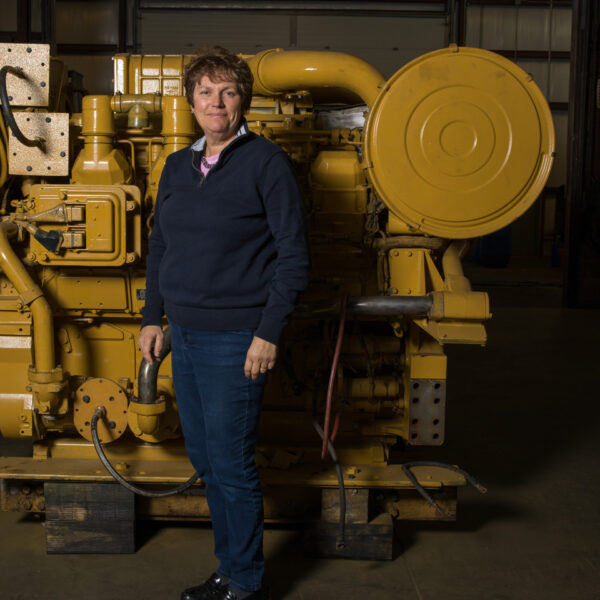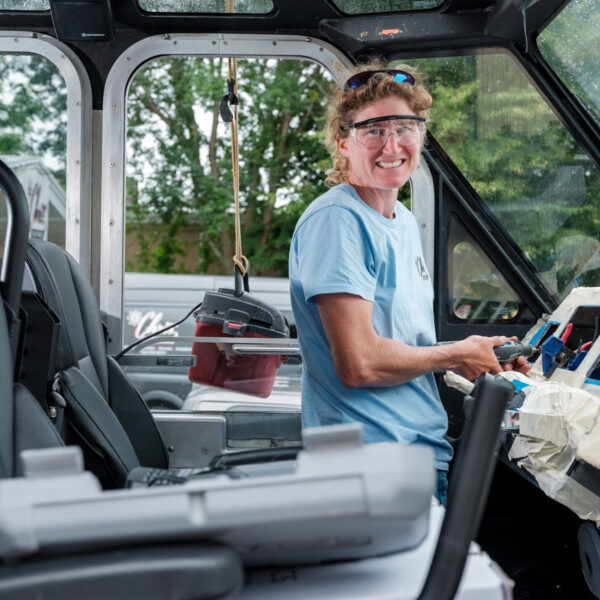On Shore
Fishing boats and fishermen are supported by a wide range of shoreside businesses. Women have always been central to this work, particularly in seafood processing, bookkeeping, and office management. Today, women are also employed as welders, riggers, marine electronics specialists, mechanics, gear manufacturers, and more. Women are leaders in specialty fields including maritime law, boat brokerage, and marine insurance. Additionally, women own fishing boats and fishing industry businesses. Many who learned the ropes from their fathers and mothers, then took over these companies.
CLICK IMAGES FOR MORE INFO
I’m the first female manager here at Maritime…I have a tremendous amount of respect for the females in this industry. I have to say, you have to be tough to be a female and work here… We do shipping, we work with trucks, we do transportation, we do the same thing as like a regular company that produces things to sell like, say, a scallop company, but we’re not producing anything. We’re storing things. …I not only run the warehouse; we also have the cold storage facility here. I also do the ships at the State Pier. We take in the clementines from Morocco. They come in on the ship, they come off on a crane through the Longshoreman’s Association and then our guys bring them in on fork lifts and we ship them out either to Canada or across the US.
Trisha DiCienzo, Manager, Maritime Terminal
New Bedford, MA
Photo by Phil Mello
While I was in college I worked as a waitress during the year and I knew a lot of fishermen. I decided I wanted to go fishing, and I ended up fishing for five and a half years out of Point Judith and a little bit out of New Bedford, and it was awesome. I loved it. I saw an ad in the paper for a job at Trawlworks, and I thought, “Well, I don’t know a lot about mending – I’ll come here, learn, and then I’ll go back fishing again.” I came here in 1988 and never left, so here I am, almost thirty years later. It’s actually kind of amusing. When I was in college, I took a class in net mending just for something different to do. I ended up failing it of all things. It’s kind of ironic.
Mary O’Rourke, Trawl Builder, Point Judith, RI
Photo by Markham Starr
The women clean and pack the fish while the men cut the fish, creating fillets. Other men put fish on the table for the women, lifting 25-pound boxes. I work cleaning fish on a table of fifteen women. There are many different people from different countries. They treat everyone equally and with respect. When someone comes in and doesn’t know the job, the rest of us get together to teach and the supervisors help too and in two weeks they understand [how to do the job].
Maria Gomez, Skinning Machine Operator
New Bedford, MA
Photo by Phil Mello
We have scallop bags and all the girls understand that they have to hold a certain measurement, because if the fishermen go over a certain amount of pounds as far as scallops, they can seize their catch. So the girls are very in tune with the bags having to be a specific specification and they really have adapted to the way of living…to the community, the fishermen community. . . I went to the Portuguese women that I knew that came from fishing industry and also came from being seamstresses and understanding the material. And with the combo of those women, we found the correct material for water to flow through, to protect the scallops, not bruise the scallops… And we figured it down to how many stitches per inch, to how many cubic or volumetric inches.
Laurie Botelho, Scallop Bag Maker & Owner The Landing
New Bedford, MA
Photo by Markham Starr
I always said I wasn’t goin’ to be a sardine packer. My mother said, “You’ve gotta do somethin’,” so my sister and I went down to Snow’s. But I says, “But I’m not stayin’! When I get out of high school, I’m not workin’ in a sardine plant.” I ended up there 54 years. I think of that quite often. I think of tellin’ my mother that. When we worked with scissors over at Stinson’s, or for Charlie, we had a lot of packers. We had 110, 120 women at times. We had a lot of packers, so I don’t really know whether we put out more fish with the scissors or they put out more this way with 20 packers. We put out some boatloads of fish.
Lela Anderson, Sardine Packer
Prospect Harbor, ME
Photo by Markham Starr
My father was a fisherman. My grandfather, my great grandfather, all from Gloucester. And my great great grandfather was from Nova Scotia. And they were all fishermen. My father, I guess when I was about seven years old, taught me how to splice three-strand. . . . It was 1998, New England Ropes had started doing dock lines for West Marine. It was only a little here and there. Then it got really uncontrollable, where they couldn’t handle it all. They called us in the front office, my daughter and I, and asked us, “Would you be interested in taking on the splices?” So we said, “Yeah.” Then we tried to figure out a name. My daughter’s mother-in-law, says, “Girls. Splice. Splice Girls.” Even my youngest grandson is fourteen, he’s getting into it now. He knows how to do one splice. He said, “What are we going to do when I get into the business Grammy? I don’t want to be a Splice Girl. – Donna Goodwin
Donna Goodwin, Owner, Splice Girls
New Bedford, MA
Photo by Phil Mello
When I got out of the Navy, I decided to go to New England Tech. I always liked making things with my hands – fabricating things. The Gallups have been in business since the 1940s and I’m the first woman that’s ever worked in the shop. I didn’t have problems with my coworkers, but with the fishermen on their boats I had to prove myself. I feel like if I had been a man on the job, they would have just taken my word that I could weld. They had to actually physically see that I could do the job. But at that point I was kind of used to it. I had to do the same thing in school, and I had to do the same thing in the military, but at this point everybody knows me down there and they all know what I’m capable of. The fishing boats are old – a lot of them – and there are some tight spots that you have to get into, like crawling under the engine in the bilge or wedging yourself behind an exhaust stack, and everything is rusted and everything is falling apart, so it can be very challenging trying to make something out of nothing. I teach welding now at New England Tech too, so I do that one day a week and I’m at Rhode Island Engine the other four days.
Kate Messer, Welder,
Point Judith, RI
Photo by Markham Starr
In the late 70s, my father, who was a lumper, met Gus Varao who owned Big G Seafood, G for Gus. Gus passed away and my father’s name is George, Big G. When I took over, it became “Big Girl Seafood.” We’re buying and processing, meaning cooking conchs, and packaging them frozen, ready to eat. . . .There’s not a single thing in my business that I don’t do at some point. I do everything. I drive the forklift. I drive the large trucks. I can cook the conchs. Everything. . . . I’ve had so many adventures and I love running a business . . . the freedom and the ability to make decisions and not have someone over you.
Heather Haggerty, Owner, Big G Seafoods,
New Bedford, MA
Photo by Phil Mello
I’m the only girl here for four years! No girls come here . . . I was going to quit. But they say, keep going, you got this, you’re going to learn. Then one morning something told me, “You got this.” And now I want to go! And every time I say “I’m going to quit” [they say] “No you’re not. We need you here!” Now they pay me more.
Jaqueline Rua, NORPEL
New Bedford, MA
Photo by Phil Mello
To be in a man’s world. It’s given me a lot of strength and made me learn to act like a man at times, you know, because it’s still a man’s world. There’s a lot of women in the business, but still a man’s world. All my clients are men. There are some wives that are also owners, so I deal with half a dozen of ladies and everybody else is a man. And dealing with fishermen and dealing with lumpers. Sometimes it’s gotten a little crazy. They come with an attitude or they’ve had a bad trip, they have a bad thing and they walk in the office and they may think they got into a barroom and they start barroom talking, you know? So then you just give them a little back of barroom talking and they shut up.
Edie Mikenna, Settlement House Owner
New Bedford, MA
Photo by Phil Mello
I like being outside and hands on and as soon as I could leave retail I did. A fisherman at the dock once asked me, you’re not gonna pack out that boat by yourself, are you? I said, yup, just watch me.
Chatham, MA
Photo by Shareen Davis
There’s not too many ladies that do what we do . . .you occasionally get a man [who says] “Anybody there that can help me? Any of the guys?” “No,” we say, “just start with me first and then we’ll see if you need to talk to anybody else.” . . . You know, we’ve got customers all over the United States. Probably the best part is the trust that a lot of them have put in us. You know selling men these quarter million-dollar engines and, you know, they’ll just come in and drop off a check and they’ll trust that we will do the right thing for them. And that’s been good.
Cindy Pettway, Owner, CP Brodeur
New Bedford, MA
Photo by Phil Mello
Sometimes when I meet people and they hadn’t realized there’s a woman coming to work on their boat they’re often a little bit surprised . . . Sometimes I think their expectations are a little lower because you’re a woman and if you do a good job, they are pleasantly surprised. They’re happy about it. If I was to advise another woman, I would say not to be intimidated or afraid to try things, or feel capable. Everybody does things a little differently, and there’s no one way to do everything right.
Christine Shope, Electronics Technician
New Bedford, MA
Photo by Phil Mello
